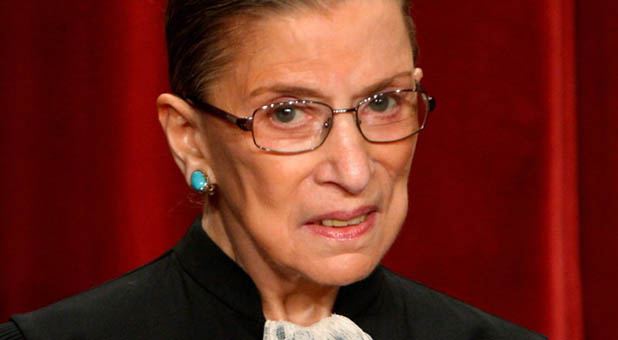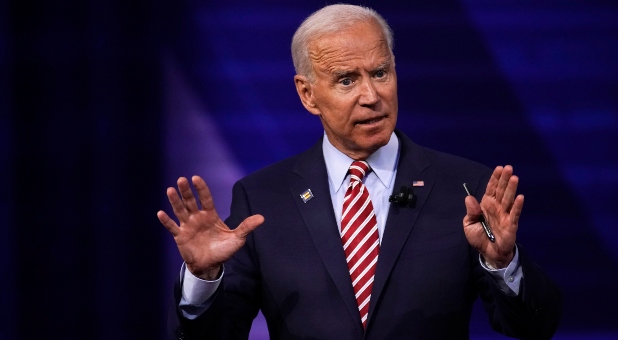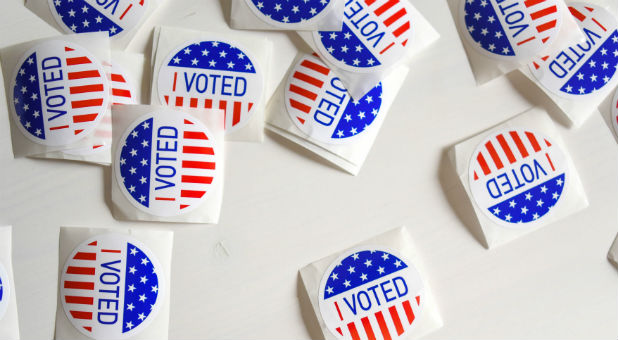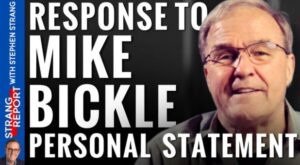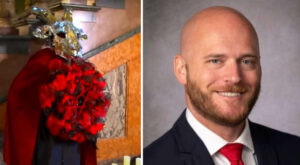By now, you all know the drill: someone says something unfriendly about Donald Trump, Donald Trump says something a little less friendly back on Twitter, and the back-and-forth continues until one or both sides say something they immediately regret.
Except, this time, the “someone” is a sitting member of the U.S. Supreme Court, Associate Justice Ruth Bader Ginsburg, who has now fully demonstrated why many liberally-minded millennials refer to her as “The Notorious RBG.” But it’s not just a political faux pas the 83-year-old jurist committed; it’s a matter of judicial ethics.
Several law professors and ethics experts have blasted her comments, although they agree that she cannot be punished for them, because the Code of Conduct for U.S. Judges applies only to lower federal courts. However, they argued, the idea of keeping judges out of politics helps protect the rule of law.
“Much as I wish it were otherwise, there is no way to read these remarks as nonpolitical,” New York University law professor Stephen Gillers wrote Wednesday for the New York Times. “The clear message is that Ginsburg believes that Donald Trump will be bad for the country and the court. I agree, but a Supreme Court justice should not say so …
“Why do we keep judges out of politics? To protect the rule of law. We want the public to view judicial rulings solely as the product of law and legal reasoning, uninfluenced by political considerations. Acceptance of court rulings is undermined if the public believes that judicial decisions are politically motivated.”
Lyle Denniston, a constitutional literary adviser at the National Constitution Center—a liberal-leaning organization—took this subject further in his own analysis. While the Constitution doesn’t proscribe Ginsburg’s comments about Trump, he said justices generally try to self-censor themselves on matters of politics.
“[M]ost judges feel restrained about saying things that might suggest that they are trying to influence how voters react to politics or to candidates,” he wrote. “This is not merely a matter of ‘political correctness. It has more to do with public sentiments about how judges and Justices should do their jobs while staying above the fevered turmoil of politics as it is sometimes practiced in America.
“The people of America are not at all squeamish about holding strong views and making strong statements about politics and political candidates, but they do seem to be squeamish about having judges do the same …
“[T]he risk that a Justice takes in stepping into popular political discourse is nurturing the idea that they, too, are immersed in politics, that they make judicial decisions according to their own political preferences. That is a corrosive perception about the court and its members, and it can make it harder for the public to accept when the Justices do reach decisions that are deeply controversial.”
The criticism of Ginsburg’s comments haven’t been limited to the legal community. Both the New York Times and the Washington Post editorial boards excoriated her for crossing the boundary into political activism.
As The Times noted:
In this election cycle in particular, the potential of a new president to affect the balance of the court has taken on great importance, with the vacancy left by the death of Justice Antonin Scalia. As Justice Ginsburg pointed out, other justices are nearing an age when retirement would not be surprising. That makes it vital that the court remain outside the presidential process. And just imagine if this were 2000 and the resolution of the election depended on a Supreme Court decision. Could anyone now argue with a straight face that Justice Ginsburg’s only guide would be the law?
Congressional Democrats were not quite as harsh, but were critical all the same. U.S. Sen. Chris Murphy (D-Conn.), arguably one of the most liberal members of the Senate, told Politico that while Americans know Supreme Court justices have political views, he’s not sure the nation is well served by having them aired publicly.
“Those who have been concerned about the open political leanings of conservatives like Clarence Thomas also have to bear the same concerns about judges on the other side of the bench,” he added.
Sen. Dick Durbin (D-Ill.) said the jurist’s comments were “very unusual,” even for someone as generally outspoken as Ginsburg. He said, “She may have got out over her skis a little bit and was more forthright and political than she should have been.”
Even Republicans who have been reluctant to support Trump in the past have come to his defense.
Speaker of the House Paul Ryan (R-Wis.), who himself has been openly critical of his party’s presidential nominee-in-waiting, and former GOP presidential rival U.S. Sen. Marco Rubio (R-Fla.) both took up Trump’s defense. Ryan suggested Ginsburg’s comments were “proof of the need” for a Republican president to choose the next Supreme Court nominee(s).
“I think it is out of place in an appointed branch of government,” he said. “That shows bias to me … I don’t think that is something she should have done.”
“How can a Supreme Court justice involved in partisan attacks during campaign be impartial in any cases involving a Trump administration?” Rubio asked.
See an error in this article?
To contact us or to submit an article


